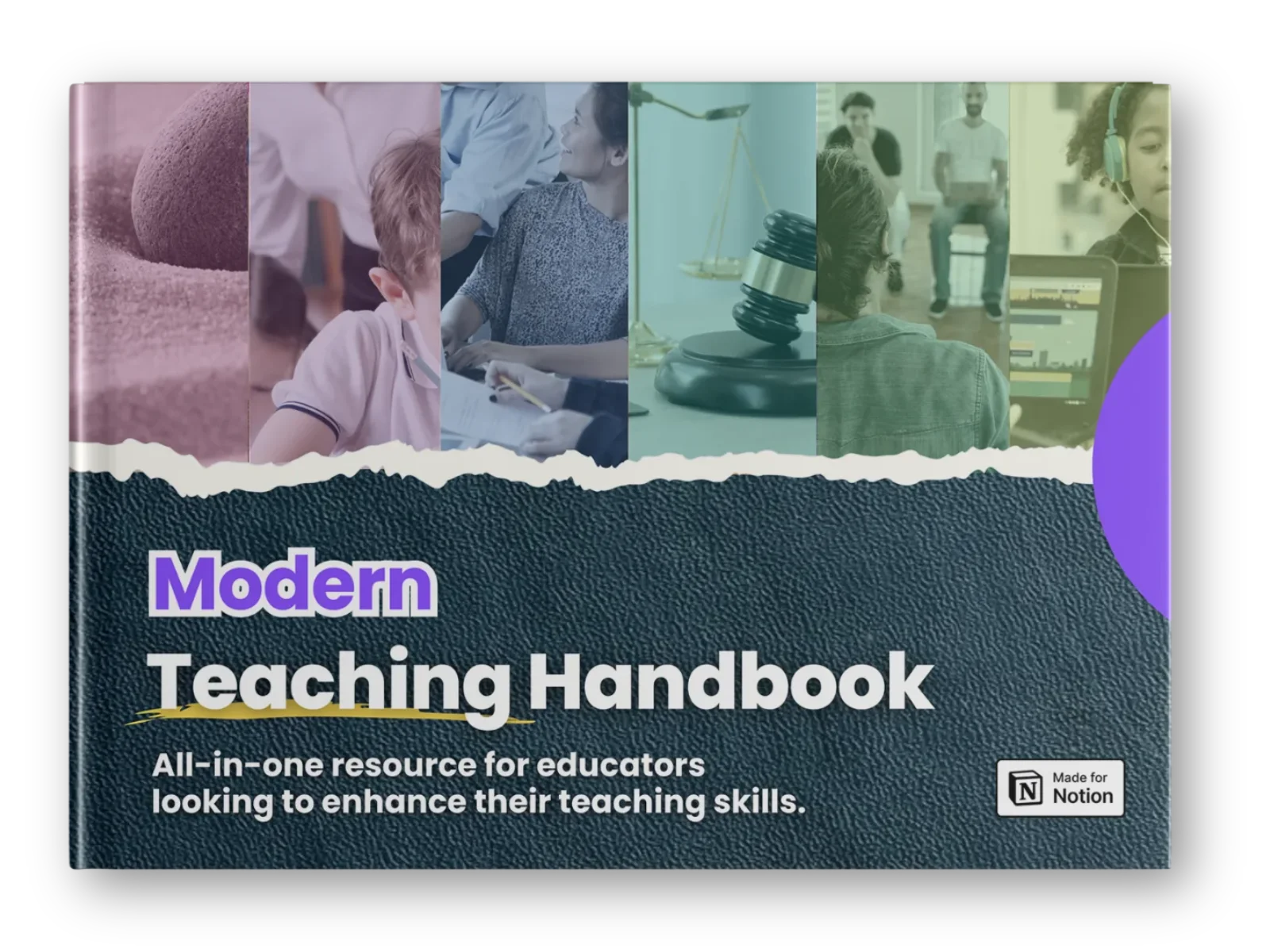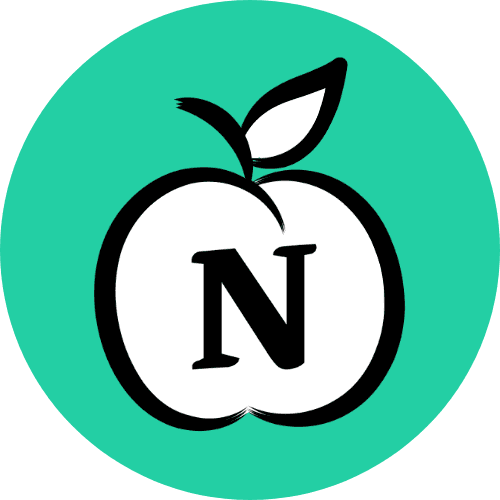

Why Teacher Preparation Needs a 21st-Century Overhaul
Why Teacher Preparation Needs a 21st-Century Overhaul
Why Teacher Preparation Needs a 21st-Century Overhaul


Article by
Milo
ESL Content Coordinator & Educator
ESL Content Coordinator & Educator
All Posts
In a world where technology is evolving at breakneck speed and cultural dynamics are shifting rapidly, the need for competent, adaptive, and forward-thinking educators has never been greater. Yet, despite widespread advancements in most sectors, the systems in place for teacher preparation often remain outdated, rigid, and misaligned with the realities of today’s classrooms. From outdated curricula to insufficient real-world training, many teacher education programs fail to meet the multifaceted demands placed on modern educators.
In a world where technology is evolving at breakneck speed and cultural dynamics are shifting rapidly, the need for competent, adaptive, and forward-thinking educators has never been greater. Yet, despite widespread advancements in most sectors, the systems in place for teacher preparation often remain outdated, rigid, and misaligned with the realities of today’s classrooms. From outdated curricula to insufficient real-world training, many teacher education programs fail to meet the multifaceted demands placed on modern educators.
Modern Teaching Handbook
Master modern education with the all-in-one resource for educators. Get your free copy now!

Modern Teaching Handbook
Master modern education with the all-in-one resource for educators. Get your free copy now!

Modern Teaching Handbook
Master modern education with the all-in-one resource for educators. Get your free copy now!

The 21st-century classroom is not the same as it was two decades ago. Today’s students come from increasingly diverse backgrounds and face complex societal challenges. They are immersed in digital environments and have unprecedented access to information. Consequently, teachers must possess not only a deep understanding of their subject matter but also the ability to engage students with culturally responsive practices, digital literacy, and adaptive methodologies. Teacher preparation programs that fail to evolve risk producing graduates who are underprepared, overwhelmed, and ineffective in the field.
Investing in Modern Pedagogical Pathways
A central tenet of educational reform lies in reimagining the path educators take toward professional readiness. The traditional brick-and-mortar format of teacher training—while valuable—often lacks the flexibility and innovation needed for contemporary learners. This is where digital education can become a transformative force, particularly through programs such as an online master's in elementary education.
Online education platforms provide a unique opportunity for aspiring teachers to balance academic growth with personal and professional responsibilities. These programs offer greater accessibility, allowing candidates from various regions and backgrounds to pursue advanced education without the constraints of location or rigid scheduling. Flexibility, however, does not mean a compromise in quality. When structured effectively, online learning environments offer collaborative forums, interactive modules, and real-time assessments that mirror the intensity and rigor of in-person classes.
William Paterson University’s online programs, for instance, exemplify how online education can uphold academic excellence while remaining accessible and adaptable. Their commitment to cultivating both a supportive and challenging environment equips future educators with the competencies needed to thrive in today’s classrooms. The programs are designed to help learners master not only instructional techniques but also emotional intelligence, classroom management, and pedagogical innovation. By offering a broad portfolio of affordable, flexible, and high-impact programs, they empower students to make informed investments in their professional futures.
To address the need for inclusivity, educators should consult our complete guide to cultural competence in education.
Modern Classrooms Demand Technological Fluency
Today’s teachers must function in digital-rich classrooms. Whether through virtual learning tools, interactive whiteboards, learning management systems, or data-driven instruction, the integration of technology into teaching has become non-negotiable. Yet, many teacher preparation programs fall short of equipping candidates with the digital competencies needed to lead effectively in these environments.
This digital fluency extends beyond basic tech-savviness. Future educators must understand how to evaluate educational software, ensure equitable access for students, and protect digital privacy. They must know how to design lessons that blend traditional content with interactive elements such as gamification, simulations, and AI-enhanced tools. Programs that do not provide hands-on training in these areas create a skills gap that undermines classroom performance and student outcomes.
One way to modernize training is by exploring the rise of AI in teacher education and its practical benefits.
Elevating Cultural Competency and Inclusivity
Another pressing need in teacher education is the emphasis on cultural competency and inclusive practices. Classrooms today are increasingly diverse, with students representing a wide range of races, ethnicities, languages, socioeconomic statuses, and learning abilities. This diversity enriches the educational landscape but also challenges teachers to meet a wide range of academic and emotional needs.
Unfortunately, traditional teacher training often pays lip service to inclusivity rather than embedding it deeply within the curriculum. Future educators must be equipped not only with theoretical understanding but also with actionable strategies for creating inclusive learning spaces. This includes differentiated instruction, trauma-informed teaching, and anti-bias pedagogy.
Modern classrooms require a strategic approach to digital integration in education to be truly effective.
Bridging the Gap Between Theory and Practice
One of the most significant weaknesses of current teacher preparation models is the disconnect between theoretical coursework and actual classroom practice. While student teaching is typically a required component, it is often limited in duration and scope. This brief exposure does not adequately prepare candidates for the unpredictable, emotionally demanding, and fast-paced nature of full-time teaching.
To resolve this issue, preparation programs must reimagine how they scaffold practical experience. Extended residencies, mentorship by experienced educators, and real-time feedback loops can all help deepen a candidate’s professional competence. Additionally, integrating simulated teaching environments can provide a safe space for experimentation and failure, allowing prospective teachers to refine their techniques without risking adverse effects on student outcomes.
Lifelong learning is essential, and having a comprehensive strategy for professional growth in teaching is the best way to stay current.
Reinforcing Lifelong Professional Learning
In a rapidly evolving educational ecosystem, professional development cannot stop at graduation. The best teachers are those who remain learners themselves—constantly seeking new strategies, updating their skills, and refining their philosophies. Yet, teacher preparation programs often fail to instill a mindset of lifelong learning.
Educator training should include an emphasis on self-assessment, reflective practices, and ongoing professional development. Programs should introduce candidates to networks, research platforms, and continuing education opportunities that allow them to grow long after they’ve entered the workforce.
The transformation of teacher preparation is not a luxury—it is a necessity. To meet the challenges of a complex, multicultural, and technologically advanced world, educators must be empowered with relevant tools, forward-thinking mindsets, and comprehensive preparation.
The 21st-century classroom is not the same as it was two decades ago. Today’s students come from increasingly diverse backgrounds and face complex societal challenges. They are immersed in digital environments and have unprecedented access to information. Consequently, teachers must possess not only a deep understanding of their subject matter but also the ability to engage students with culturally responsive practices, digital literacy, and adaptive methodologies. Teacher preparation programs that fail to evolve risk producing graduates who are underprepared, overwhelmed, and ineffective in the field.
Investing in Modern Pedagogical Pathways
A central tenet of educational reform lies in reimagining the path educators take toward professional readiness. The traditional brick-and-mortar format of teacher training—while valuable—often lacks the flexibility and innovation needed for contemporary learners. This is where digital education can become a transformative force, particularly through programs such as an online master's in elementary education.
Online education platforms provide a unique opportunity for aspiring teachers to balance academic growth with personal and professional responsibilities. These programs offer greater accessibility, allowing candidates from various regions and backgrounds to pursue advanced education without the constraints of location or rigid scheduling. Flexibility, however, does not mean a compromise in quality. When structured effectively, online learning environments offer collaborative forums, interactive modules, and real-time assessments that mirror the intensity and rigor of in-person classes.
William Paterson University’s online programs, for instance, exemplify how online education can uphold academic excellence while remaining accessible and adaptable. Their commitment to cultivating both a supportive and challenging environment equips future educators with the competencies needed to thrive in today’s classrooms. The programs are designed to help learners master not only instructional techniques but also emotional intelligence, classroom management, and pedagogical innovation. By offering a broad portfolio of affordable, flexible, and high-impact programs, they empower students to make informed investments in their professional futures.
To address the need for inclusivity, educators should consult our complete guide to cultural competence in education.
Modern Classrooms Demand Technological Fluency
Today’s teachers must function in digital-rich classrooms. Whether through virtual learning tools, interactive whiteboards, learning management systems, or data-driven instruction, the integration of technology into teaching has become non-negotiable. Yet, many teacher preparation programs fall short of equipping candidates with the digital competencies needed to lead effectively in these environments.
This digital fluency extends beyond basic tech-savviness. Future educators must understand how to evaluate educational software, ensure equitable access for students, and protect digital privacy. They must know how to design lessons that blend traditional content with interactive elements such as gamification, simulations, and AI-enhanced tools. Programs that do not provide hands-on training in these areas create a skills gap that undermines classroom performance and student outcomes.
One way to modernize training is by exploring the rise of AI in teacher education and its practical benefits.
Elevating Cultural Competency and Inclusivity
Another pressing need in teacher education is the emphasis on cultural competency and inclusive practices. Classrooms today are increasingly diverse, with students representing a wide range of races, ethnicities, languages, socioeconomic statuses, and learning abilities. This diversity enriches the educational landscape but also challenges teachers to meet a wide range of academic and emotional needs.
Unfortunately, traditional teacher training often pays lip service to inclusivity rather than embedding it deeply within the curriculum. Future educators must be equipped not only with theoretical understanding but also with actionable strategies for creating inclusive learning spaces. This includes differentiated instruction, trauma-informed teaching, and anti-bias pedagogy.
Modern classrooms require a strategic approach to digital integration in education to be truly effective.
Bridging the Gap Between Theory and Practice
One of the most significant weaknesses of current teacher preparation models is the disconnect between theoretical coursework and actual classroom practice. While student teaching is typically a required component, it is often limited in duration and scope. This brief exposure does not adequately prepare candidates for the unpredictable, emotionally demanding, and fast-paced nature of full-time teaching.
To resolve this issue, preparation programs must reimagine how they scaffold practical experience. Extended residencies, mentorship by experienced educators, and real-time feedback loops can all help deepen a candidate’s professional competence. Additionally, integrating simulated teaching environments can provide a safe space for experimentation and failure, allowing prospective teachers to refine their techniques without risking adverse effects on student outcomes.
Lifelong learning is essential, and having a comprehensive strategy for professional growth in teaching is the best way to stay current.
Reinforcing Lifelong Professional Learning
In a rapidly evolving educational ecosystem, professional development cannot stop at graduation. The best teachers are those who remain learners themselves—constantly seeking new strategies, updating their skills, and refining their philosophies. Yet, teacher preparation programs often fail to instill a mindset of lifelong learning.
Educator training should include an emphasis on self-assessment, reflective practices, and ongoing professional development. Programs should introduce candidates to networks, research platforms, and continuing education opportunities that allow them to grow long after they’ve entered the workforce.
The transformation of teacher preparation is not a luxury—it is a necessity. To meet the challenges of a complex, multicultural, and technologically advanced world, educators must be empowered with relevant tools, forward-thinking mindsets, and comprehensive preparation.
Modern Teaching Handbook
Master modern education with the all-in-one resource for educators. Get your free copy now!

Modern Teaching Handbook
Master modern education with the all-in-one resource for educators. Get your free copy now!

Modern Teaching Handbook
Master modern education with the all-in-one resource for educators. Get your free copy now!

Table of Contents
Modern Teaching Handbook
Master modern education with the all-in-one resource for educators. Get your free copy now!
2025 Notion4Teachers. All Rights Reserved.
2025 Notion4Teachers. All Rights Reserved.
2025 Notion4Teachers. All Rights Reserved.
2025 Notion4Teachers. All Rights Reserved.







